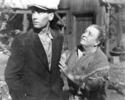The first lesson to be learned from this earlier era is that a large middle class requires an economy that generates a broad base of jobs paying middle-class wages. The New Dealers were not opposed to "rigging" the labor and financial markets to achieve this result. New Deal progressives believed the economy should exist to serve society, not the other way around, and that the government has a duty to shape the economy to meet middle-class aspirations. read more »
New Deal
Public Investment, Decentralization and Other Economic Lessons from the New Deal
New Deal Investments Created Enduring, Livable Communities
Growing appeals for more public infrastructure investment make two critical claims: that this would help stimulate the economy in the short run while making our country more productive over the long run. Unlike tax rebates and other short-term stimulus, a major infrastructure investment program can have powerful effects on community life beyond boosting spending at the local Wal-Mart. read more »
The New Deal & the Legacy of Public Works
Almost completely ignored in the press this year has been the 75th anniversary of the New Deal. Social Security, public housing, school lunches, deposit insurance, labor relations standards and banking regulations are among its many enduring legacies. On this anniversary, it is worth looking at the public works programs that constructed roads and buildings that still exist in every county in America. read more »
Progressives, New Dealers, and the Politics of Landscape
One of the greatest ironies of our time is the fact that today’s leading progressives tend to despise the very decentralized landscape that an earlier generation of New Deal liberals created. read more »
















